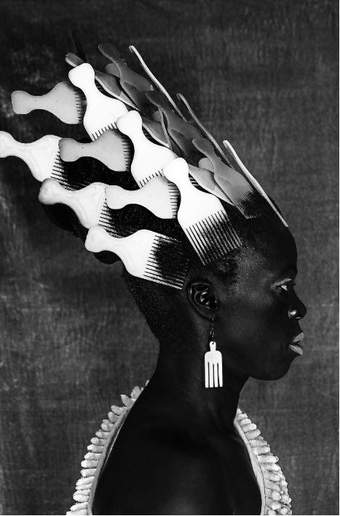
Zanele Muholi Qiniso, The Sails, Durban 2019 © Zanele Muholi Courtesy of the Artist and Yancey Richardson, New York

Zanele Muholi Qiniso, The Sails, Durban 2019 © Zanele Muholi Courtesy of the Artist and Yancey Richardson, New York
This summer, the acclaimed exhibition of visual activist Zanele Muholi will return to Tate Modern. Muholi (b.1972) came to prominence in the early 2000s with photographs that told the stories of Black lesbian, gay, bisexual, trans, queer and intersex lives in South Africa. Over 300 photographs will be brought together to present the breadth of Muholi’s career to date, from their very first body of work to their latest and on-going series. These images challenge dominant ideologies and present the participants in their photographs as empowered individuals superbly existing in the face of prejudice, intolerance and often violence.
This exhibition – the first major UK survey of the artist’s work – was originally opened at Tate Modern in 2020 but was cut short by the national lockdown. UK visitors will now have the opportunity to see a revised and expanded version of the exhibition, following a highly successful and record-breaking European tour.
During the 1990s, South Africa underwent major social and political changes. While its 1996 post-apartheid constitution was the first in the world to outlaw discrimination based on sexual orientation, the LGBTQIA+ community remains a target for violence and prejudice to this day. In the early series Only Half the Picture, Muholi depicted the complexities of gender and sexuality for the queer community, including moments of love and intimacy as well intense images alluding to traumatic events in the lives of the participants. Muholi also began an ongoing visual archive of portraits, Faces and Phases, which celebrates and commemorates Black lesbians, transgender and gender non-conforming individuals. Each participant looks directly at the camera, challenging the viewer to hold their gaze, while individual testimonies capture their stories. The project has become a living archive of this community in South Africa and beyond.
The exhibition will include several other key series of works, including Brave Beauties, which celebrates empowered non-binary people and trans women, and Being, a series of tender images of couples which challenge white supremacist and heteronormative stereotypes and taboos. Within these series, Muholi tells collective as well as individual stories. They challenge preconceived notions of deviance and victimhood, encourage viewers to address their own misconceptions, and create a shared sense of understanding and solidarity.
New works will be presented from Muholi’s acclaimed series of dramatic self-portraits entitled Somnyama Ngonyama (‘Hail the Dark Lioness’ in isiZulu). Turning the camera on themself, the artist adopts different poses and characters to address issues of race and representation. From scouring pads and latex gloves to rubber tires and cable ties, everyday materials are transformed into politically loaded props. The resulting images explore themes of labour, racism, Eurocentrism and sexual politics, often commenting on events in South Africa’s history and Muholi’s experiences as a Black queer person traveling abroad. By enhancing the contrast in the photographs, Muholi also emphasises the darkness of their skin tone, owning their Blackness with pride and asserting its beauty. Since 2020, Muholi has expanded their portraiture practice into sculpture. Exploring intimacy, four monumental sculptures in the exhibition reckon with the relationship between public and private spheres. These larger than life-size works include three bronze depictions of the artist and a bronze representation of female sexual anatomy.
The final space will focus on collectivity, including images of protest and pride marches and of life changing events. This final section also draws attention to the Muholi Art Institute, Cape Town, established in 2021. The self-funded initiative offers residencies, studio and exhibition spaces for up-and-coming creatives from underserved backgrounds in South Africa. The exhibition will also be accompanied by a soundscape specially created by South African singer and award-winning musician Toya Delazy. Delazy has created unique responses to each section of the show to form a sonic tour for visitors to take through the exhibition.